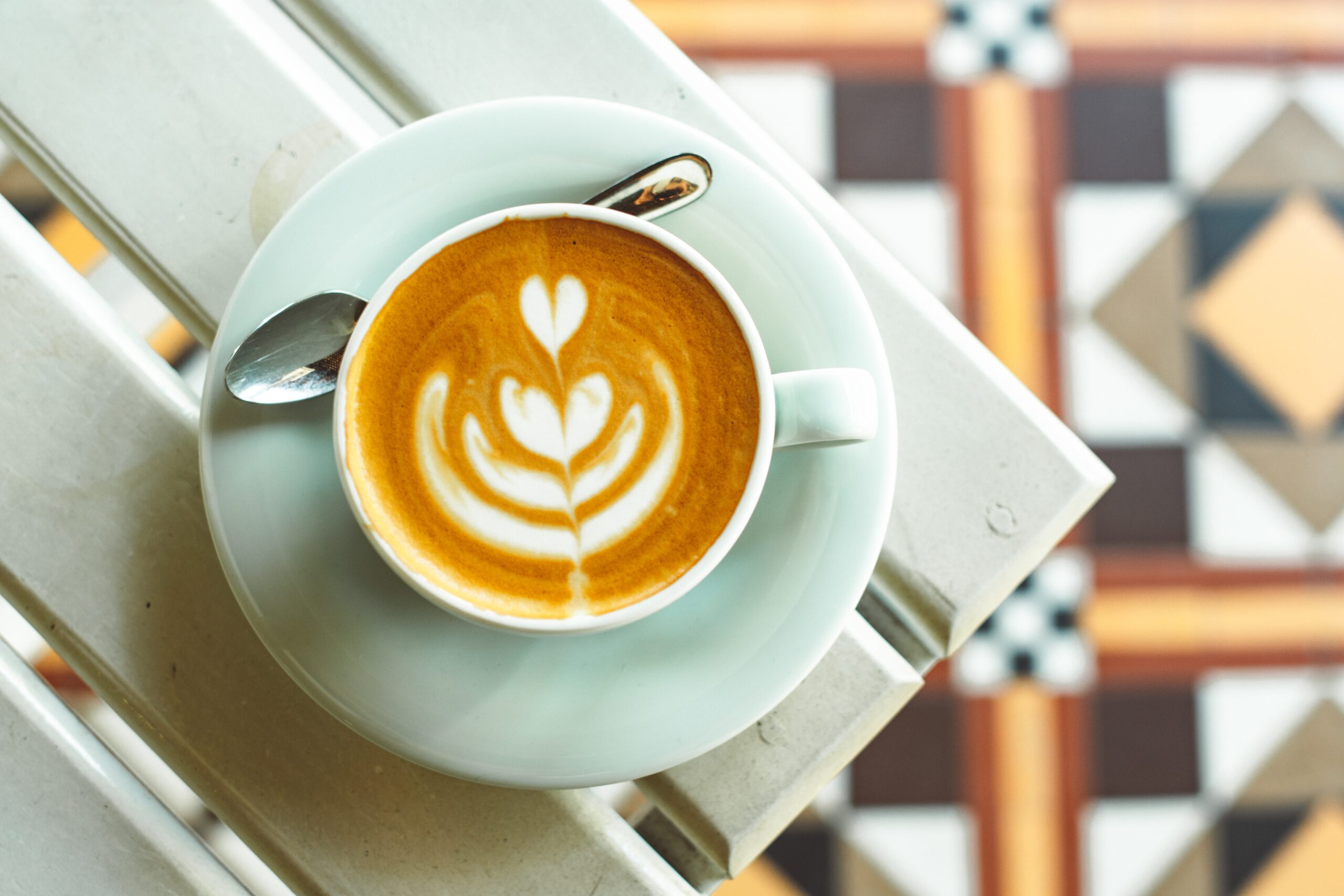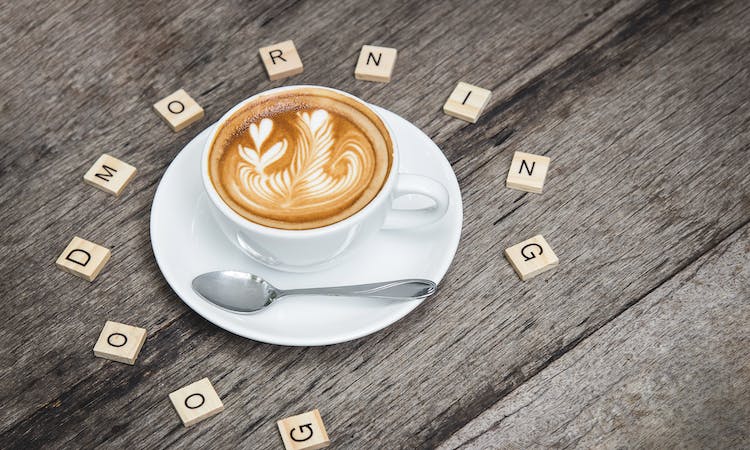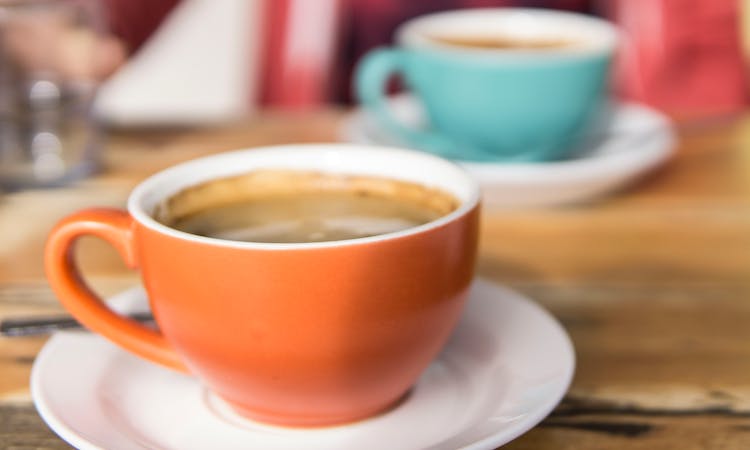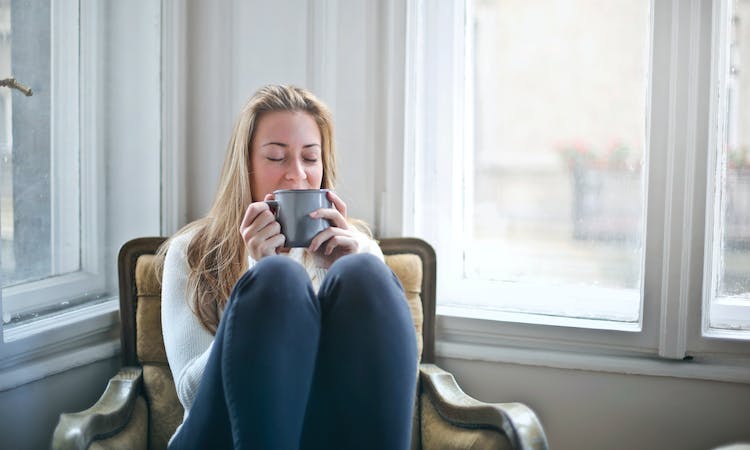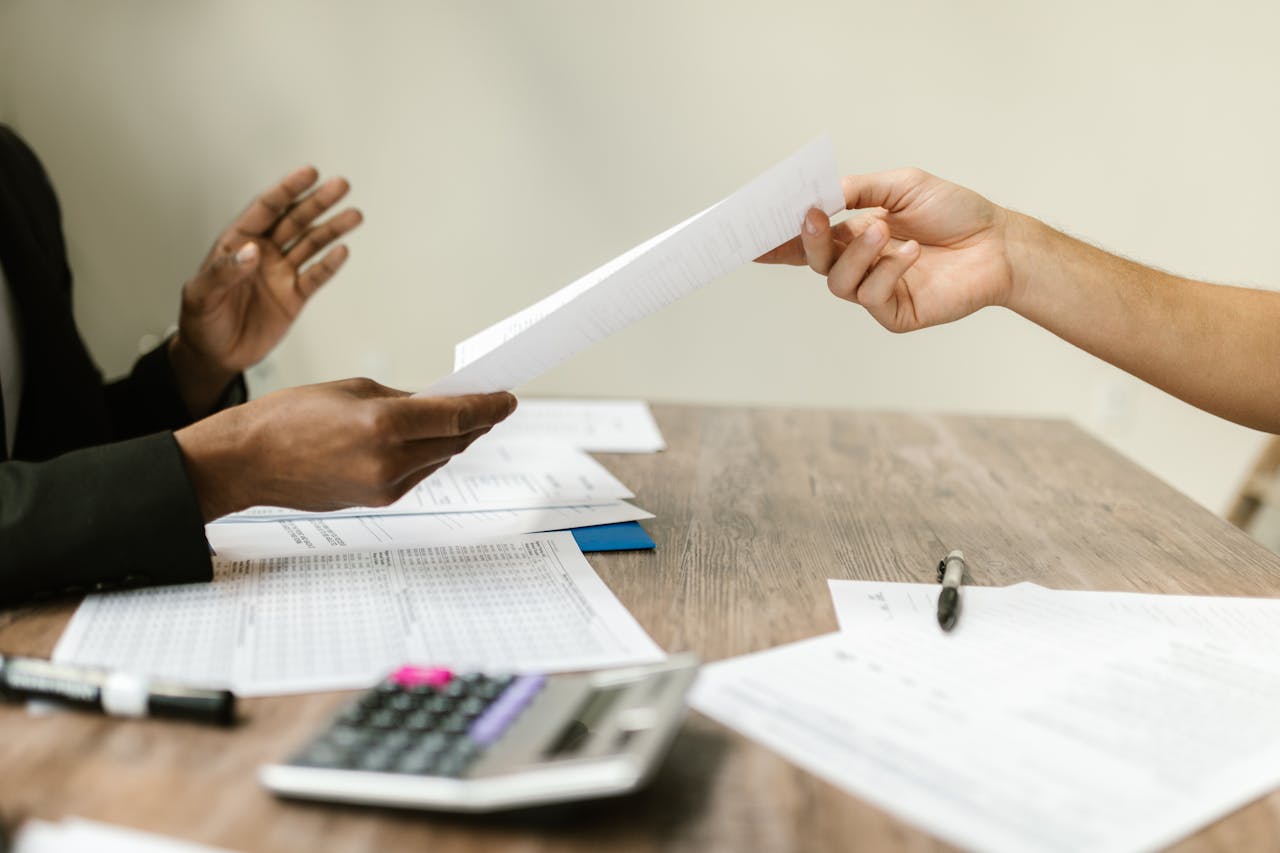No matter if you have a go-to coffee order or are always switching it up, you’ll still have to consider whether to go for a decaf or caffeinated drink. Caffeinated coffee is the default, providing that energy boost many of us are after, but the merits of decaf shouldn’t be ignored either.
So, whether you’re ordering from your local coffee franchise or enjoying a brew at home, here’s what you need to know about the pros and cons of decaf and regular coffee.
- Pros of Drinking Caffeinated Coffee
- Cons of Drinking Caffeinated Coffee
- Pros of Drinking Decaf Coffee
- Cons of Drinking Decaf Coffee
What is Decaf Coffee?
As the name suggests, decaffeinated coffee is coffee with the caffeine removed. Generally, 97% of the caffeine derived from coffee beans is removed to create a decaf coffee.
As such, it is not entirely free of caffeine but contains around 2-7mg of caffeine per cup. A regular cup of coffee contains much more caffeine, with the average cup having 70-140mg, depending on the strength of the drink.
The debate around regular and decaf coffee is hotly contested among coffee aficionados. While some may only have eyes forthe real deal, others may greatly benefit from drinking less caffeine while still getting to enjoy a good coffee.
Does Decaf Coffee Taste Different?
In the past, decaf coffee has had somewhat of a poor reputation among hardcore coffee lovers, with some arguing that it doesn’t taste as good as ‘regular’ coffee. Decaf coffee can taste slightly different from regular coffee; however, exactly how the flavour is impacted can depend on a number of things, such as the decaffeination method, coffee bean quality and brewing method.
With a high-quality brew, some people may not be able to tell the difference between decaf and normal coffee. On the other hand, even if the taste difference is very obvious, this might not necessarily be a bad thing. In general, decaf coffee can have a slightly milder, sweeter taste that is less intense than regular coffee, which may be preferable to some people.
What’s the Difference Between Regular & Decaf Coffee?
There are several key differences to consider when deciding whether caffeinated or decaf coffee is right for you.
Caffeine Content: The most obvious difference is that one has caffeine, the other does not. Regular coffee has around 70-140mg of caffeine per cup, while decaf coffee usually has 2-7mg (the decaffeination process cannot remove 100% of caffeine).
Taste: The decaffeination methods can change the coffee’s flavour somewhat, sometimes resulting in a milder, less vibrant flavour in decaf coffee compared to the richness and full-bodied quality of regular coffee.
Effects: The lack of caffeine content in decaf coffee means you don’t get the same energising effect or feeling of alertness that coffee is often drunk for.
The Pros of Drinking Caffeinated Coffee
- Energising
- Health benefits
- Plenty of choices
1. Coffee is Energising & Helps Wake You Up
Coffee is famous for its energising properties, as for a lot of people, a good morning brew is an essential way to start the day. Some people feel they can’t function without a rejuvenating cup of joe – and the caffeine in the drink is what provides this energising effect.
2. Coffee Offers Various Health Benefits
Although there are potential negative side effects of excessive caffeine, when consumed in moderation, caffeine can provide numerous health benefits. Coffee contains large amounts of antioxidants, which can help inhibit cell damage, manage weight and improve brain function.
3. There are Plenty of Choices
Whether you want a light, medium, or dark roast, regular coffee offers so many different flavour options. Creamy and sweet, sharp and acidic or bold and earthy, you can have your pick.
The Cons of Drinking Caffeinated Coffee
- Acquired taste
- Side effects from too much caffeine
1. Coffee Can Be an Acquired Taste
Taste is subjective; for some, coffee is an acquired taste due to its strength and bitterness. Because of the unique taste, it can take someone quite a while to start appreciating such a distinct flavour.
If you don't love the taste of coffee but still want the benefits of caffeine, matcha is a great alternative. See our guide on matcha vs coffee to see if it's the drink for you!
2. There are Side Effects to Drinking Too Much Caffeine
Too much caffeine can have adverse effects. Any more than around 4 cups of coffee will probably set you over the recommended daily amount of caffeine. Exceeding the recommended limit can:
- Increase anxiety
- Make you jittery or agitated
- Increase blood pressure and heart rate
- Worsen kidney disease
If you experience these downsides, you might not have to cut out caffeine completely, but just be more moderate with how much you consume.
The Pros of Drinking Decaf Coffee
- Can be healthier
- Drink more
- Can aid sleep
- Milder taste
1. Decaf Coffee Can Be Healthier
In your quest for the healthiest coffee, decaf coffee may be ideal for reducing caffeine intake. Try switching a caffeine-filled beverage for a decaf once in a while if you start noticing any negative side effects.
2. You Can Drink More Decaf Coffee
What gives decaf an edge over regular coffee is that you can drink far more of it and won’t have to limit yourself to four or fewer cups a day. This way, you can get the comfort of a warm beverage without any of the more negative effects.
3. Decaf Coffee Can Aid Sleep
Caffeine is well-known as an energising ingredient, so it isn’t exactly the best option to have when you’re trying to get to sleep. A nice cup of decaf is far more suitable as an evening drink as it won’t keep you wired all night.
4. Decaf Taste Has a Milder, Sweeter Taste
As mentioned above, taste is very subjective. Some actually prefer the milder, sweeter taste that decaf provides. Decaf still provides a hot, comforting coffee taste with none of the caffeine crashes.
The Cons of Drinking Decaf Coffee
- No caffeine benefits
- Fewer options
- Weaker
1. Decaf Can’t Provide the Same Caffeine Benefits
As there is minimal caffeine in coffee, it can’t offer the same energising effects, so won’t be much good if you want something to perk you up when you’re feeling tired.
2. There are Fewer Coffee Options For Decaf Drinkers
As caffeinated coffee tends to be the standard, there are a lot fewer options when it comes to decaf coffee which can be pretty limiting to people who enjoy variety.
3. Decaf Coffee is Weaker
For some, decaf coffee can feel quite pointless considering it generally contains only 3% caffeine. Many drink coffee because it makes them feel energised, or they simply enjoy the strong flavour, so such a low amount of caffeine can make people wonder why they don’t just get some water if they need an alternative.
4. Changes During the Decaffeination Process
Removing the caffeine from coffee can be done in several ways, including using solvent-based, CO2 and Swiss Water processes. While each method does aim to retain or replicate the original flavour of the coffee, in some cases, this is not the reality.
Depending on the decaffeination method used, the flavour can change quite significantly – keeping all the compounds in coffee is the right balance can be challenging when put through intricate processes like decaffeination.
Some drinkers may find that different decaf coffee options have a dull, more muted taste compared to the richness of caffeinated coffee that has maintained its flavour integrity. However, for those who prefer a slightly subtler coffee taste, this may be the preferred option.
So, ultimately, which is better comes down to preference and what you want from a steaming cup of coffee – if you want to feel energised, go for regular, but if you want the experience of coffee without any adverse caffeine-related side effects, go for decaf!
No matter what your coffee of choice is, why not find out where your local Esquires store is to enjoy all your favourite cafe treats?
